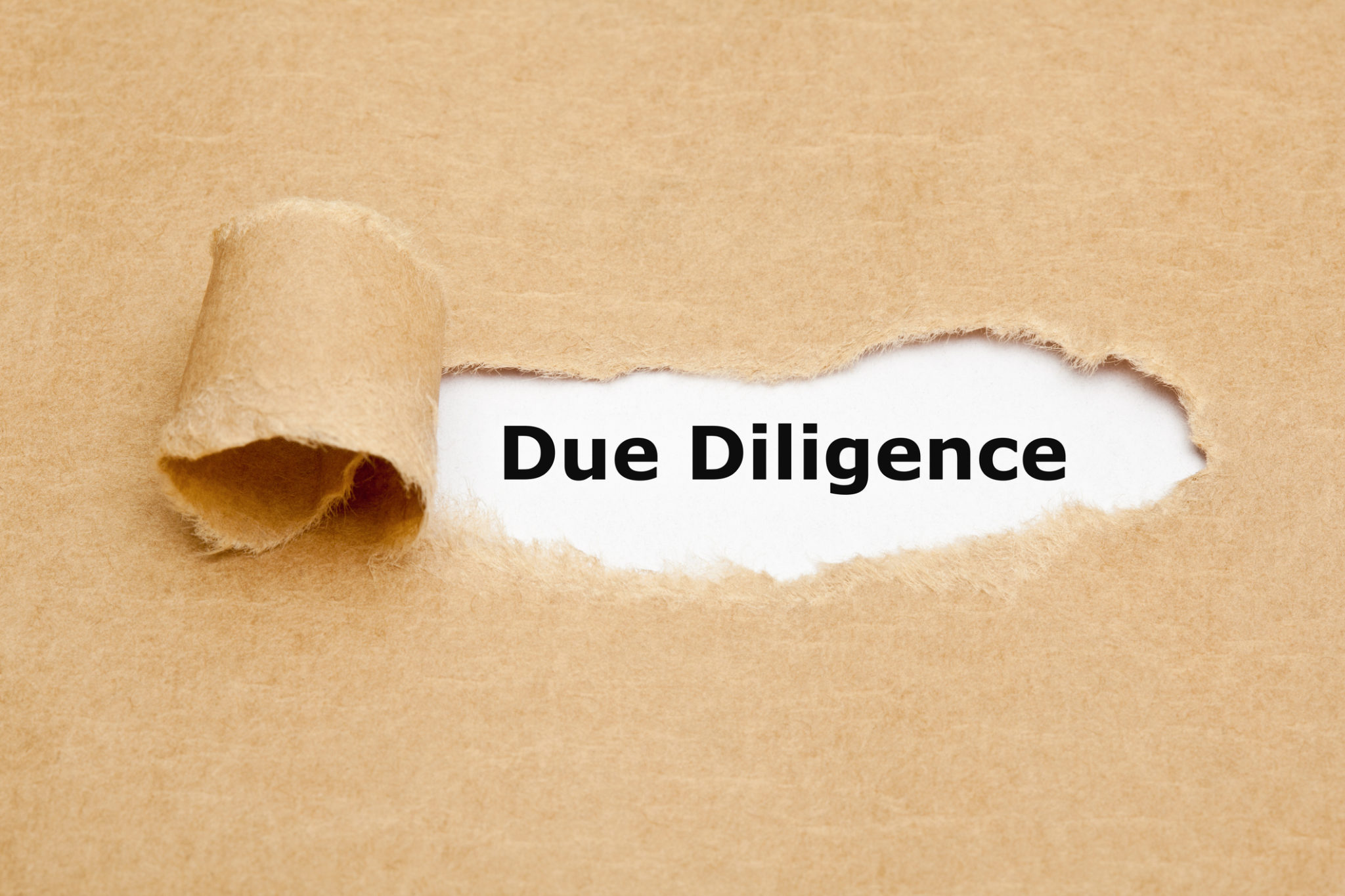The process of selling your business is long and complicated — and that’s to be expected. After all, you want to get full value for your company, and the buyer wants to have an overview of every aspect of the business to determine whether or not it’s the right transaction for him or her. For this reason, a considerable amount of time and energy goes into the due diligence process.
What Is Due Diligence?
As Investopedia explains, due diligence is an audit or investigation of an investment to confirm all of the facts. In an acquisition of a manufacturing business, due diligence looks at EBITDA, cash flow, the aging of receivables and payables, capital expenditures, physical capital and intellectual property.
It can include reviewing financial statements, earnings projections, consumer market analysis and operating redundancies. It can also involve examining ongoing litigation and antitrust considerations, as well as assessing third-party relationships and creating a disclosure schedule. In some cases, sellers also evaluate how the acquisition will impact the workforce of the targeted company, as well as its customers.
Why Due Diligence Is Important
Deloitte reports that acquisitions that are subjected to a due diligence process have a greater chance of succeeding than those that don’t. There are several reasons for this:
- Buyers and sellers may be biased. Buyers may be unrealistic about business synergies and how quickly assimilation can be achieved, while sellers may be overly optimistic in their earnings projections.
- Parties involved in the transaction may receive incentives. This can lead them to push the deal through without doing the appropriate research.
- Financial information may be incomplete. Everything from tax issues to non-recurring matters needs to be fully clarified.
- Potential exposures may be uncovered. A thorough risk analysis requires comprehensive data regarding matters such as product liability, corruption and environmental concerns.
- Negotiations may be facilitated. With a full understanding of the company’s profits, opportunities and risks, it can be easier to negotiate better transaction terms.
- Inability to obtain restitution. After the completion of the transaction, the seller generally cannot be held liable for issues uncovered after the fact.
–
Considering all of these factors, it should be clear that it’s in the buyer’s best interest to conduct thorough due diligence. And if a seller is reluctant to comply, it will raise red flags that could compromise the transaction.
Be Prepared for Due Diligence
It’s not just buyers who can benefit from due diligence. The National Center for the Middle Market recommends that a seller should perform due diligence on his or her own business before putting it on the market.
By having a 360-degree view of your business, you’ll be able to discover and resolve issues that could negatively affect its valuation. In addition, you’ll be in a better position to anticipate and respond to objections from the buyer — plus, you can gather all the documents required to support the transaction. This in turn can help accelerate the completion of the transaction.
As Forbes points out, you should make sure you have all of your organizational documentation in order, including your articles of incorporation and bylaws, as well as any papers pertaining to stock ownership, assets, loans and lines of credit, supplier agreements and employment contracts.
What to Expect
Once the letter of intent has been signed by both parties, there are several things you can expect during a due diligence process. The buyer will bring financial, accounting and legal experts to help evaluate your company. You’ll be required to provide them with the information they request in order to accurately value your business.
According to Chron, you should be able to provide the following:
- Financial information: This encompasses a transparent overview of your financial records and insights into the finance and accounting department’s processes. Think of things like financial record-keeping, cost tracking, budgetary procedures and internal control. It also includes how you maintain your assets, manage your capital, minimize your liabilities and invest in growth.
- Management analysis: Upper management is critical to the success of your business. The buyer will want an overview of the roles and responsibilities of your executives, along with concise profiles of each. It’s also advisable to include information about compensation, including profit sharing, stock options and bonuses.
- Legal issues: If your business is involved in any lawsuits, provide a brief overview of each, along with the associated expenses to date. You should also provide information about your insurance policies, compliance with regulations, and any environmental hazards.
- Marketing efforts: Provide information about your marketing efforts and their outcomes, as well as an analysis of your market. You should also include details about your most significant competitors.
–
Get Your House in Order
Due diligence might feel like a hassle, but it’s a necessary step for the buyer to gain insight into the current state and future potential of your business. Fortunately, if you prepare properly, anticipating the factors a buyer will want to examine should help you identify any issues so you have the time to resolve them without being under pressure from outside scrutiny. And that in turn will allow you to get your house in order well ahead of any sale.

